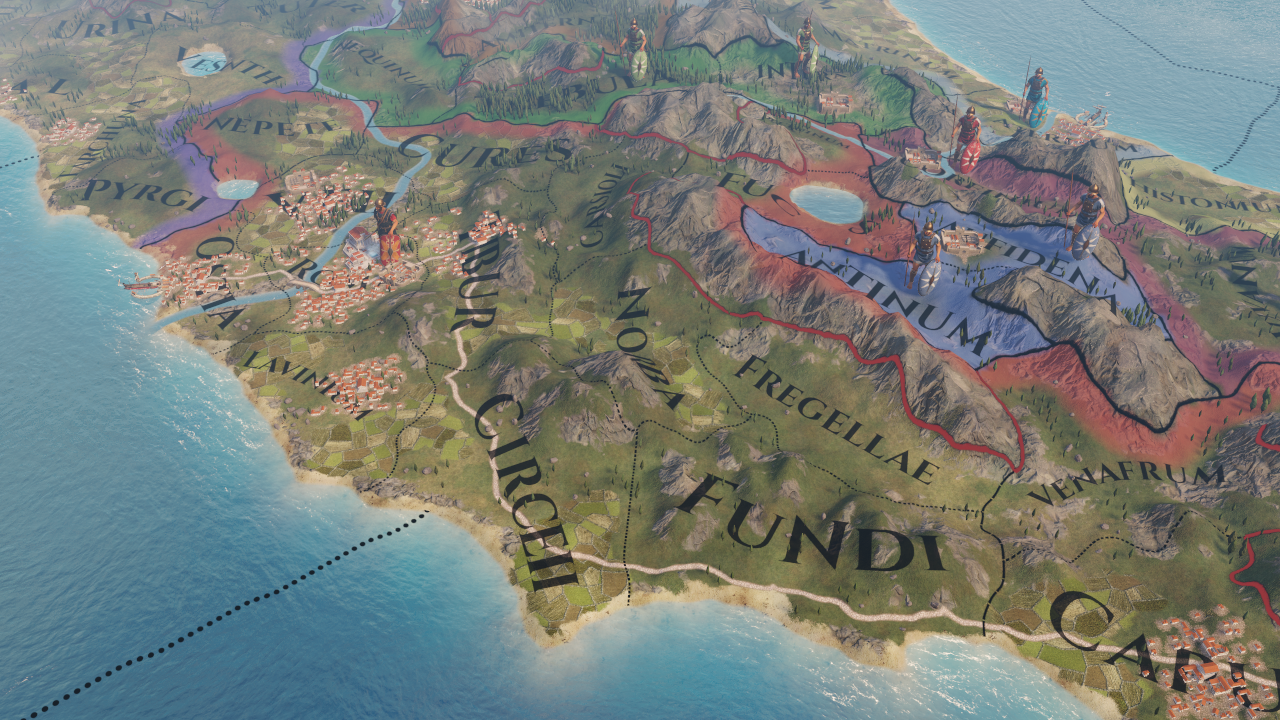Development Diary #60 - Reworking Monarch Power

Welcome back to another Dev Diary for Imperator: Rome!
Once again, we’ll be covering some information that those of you using the open beta branch will already have been playing with.
Monarch Power
Before we dive in to the mechanics and solutions behind the monarch power rework, I’d like to explain a little bit about the impetus behind the changes, and the varying factors at play.
One of the more controversial aspects of the game at release, was the implementation of Monarch Power. After reading reams of feedback on the subject, and considering the available options, we elected to look at reworking the entire concept of Monarch Power in the Cicero update.
The community issues with the 1.0 monarch power system could broadly be boiled down into two main categories:
- The lack of control over the stats that your monarch or ruler has.
- The inconsistency of the varying purposes power was intended to be used for.
In essence, we needed a system that acted as an anti-snowballing mechanic, felt like something a player had control over, and which avoided any unnecessary abstraction both conceptually and in terms of practical use.
Enter Political Influence. PI is intended to represent exactly what it describes: the influence that a government or nation has over their own political establishment.
The way in which it is produced is also related directly to the political establishment. Each primary Office holder in your nation will contribute to the PI gain of your nation, based on their loyalty to your cause. The more loyal your cabinet, the less practical power you will have to perform the various actions associated with PI.
Which leads me comfortably to the next topic we covered as part of the power rework, and point two of the community issues surrounding Monarch Power. A huge variety of actions that previously had a token power cost, have been redesigned to use one of our newer, more dynamic resources. Tyranny, Stability, Political Influence, Corruption and even Aggressive Expansion have a more clear-cut purpose; the logical solution was to use these to represent the consequences of your actions, rather than attach an abstract cost:value ratio to things such as Bribery, selection of National Ideas, inviting investment, and more.

Of course, there are still actions that demand the use of more conventional currency. Gold still plays a large part in a functional government of Antiquity, perhaps even more so in the Cicero update. The power cost for inventions, for example, has been replaced with a scaling gold cost, representing the direct cost of investment into research and development:

In addition to reworks to the cost of many actions and abilities, it became quickly apparent that many actions needed no cost at all, and functioned as their own opportunity cost, or had a consequential cost. An example of this would be the Assault ability for armies; the manpower lost during an assault vastly outweighed any token power cost, and as such, has no action cost in Cicero. Citing an example of opportunity cost, Omens will no longer have an up-front price; the opportunity cost comes of being tied to your chosen omen for the entire duration, unable to switch or cancel the ongoing omen.
The one instance that we felt was not covered by any of our new or old systems, was the Military Tradition mechanic. This needed something unique, and as such, we needed a unique method by which to unlock and acquire traditions.
It felt appropriate to treat Traditions as a self-contained system, and the Cicero update will include a Military Experience resource. This will be generated over time at a modest base rate, but is modified by the average combat experience level of your national cohorts.
Military Drill is introduced alongside this, as a way for armies to maintain a certain level of experience during peacetime. The employment of Mercenary forces will detract from a nation’s Military Experience gain, but have been made vastly cheaper to maintain, to compensate for this.

Rulers will not be entirely without merit in the Cicero update, with each of the four statistics granting you bonuses to certain stats, scaled by the value of the stat itself:
- Martial: Manpower Recovery and Land Morale Recovery
- Finesse: Commerce Modifier and Build Cost
- Charisma: Monthly Tyranny Decay and Claim Fabrication speed
- Zeal: Monthly Stability Increase and War Exhaustion Decay
A skilled ruler will therefore still be important to a state, and a weak one will be noticeably less potent.
To conclude, we realised early on in the testing cycle for these changes, that it felt more organic, dynamic, and most importantly fun, to utilise resources in this way. That said, if you wish to be the judges of this yourselves, the open beta for the Cicero update is still underway, we invite you to try it out!
/Arheo
Click here to discuss this week's development diary with our team!








